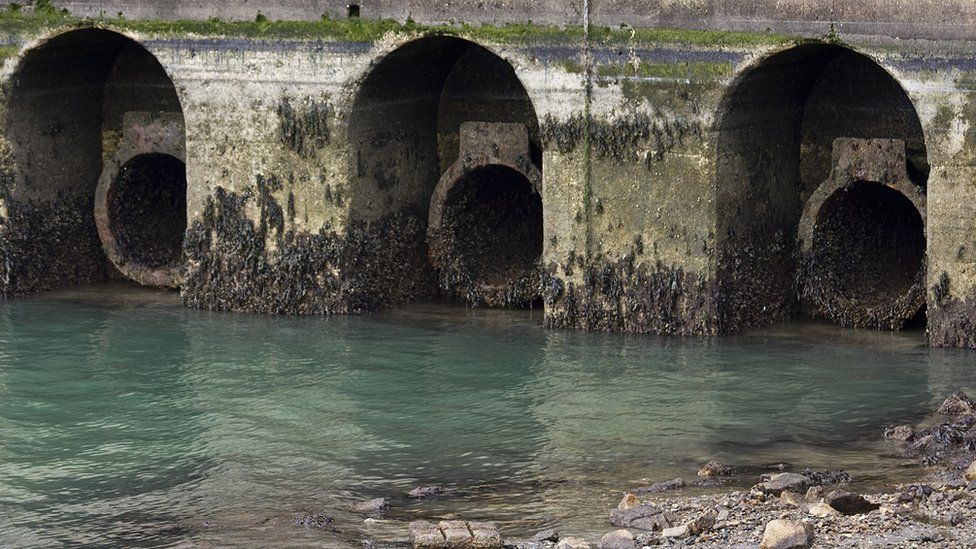
By Esme Stallard Jonah Fisher and Sophie Woodcock
Climate and science
The UK’s environment watchdog suspects the government and regulators have broken the law over how it regulates sewage releases.
The Office for Environmental Protection announced its preliminary findings into an investigation on Tuesday.
The regulators and Defra now have two months to provide a response before a final decision is made.
Last week a BBC investigation found potentially hundreds of illegal dry sewage spills in England.
In response to the announcement the government said: “The volume of sewage discharged is completely unacceptable. That is why we are the first government in history to take such comprehensive action to tackle it”.
But it added: “While we do not agree with the OEP’s initial interpretations, which cover points of law spanning over two decades, we will continue to work constructively with the OEP on this issue.”
In June 2022 the OEP announced it was investigating whether England’s regulators, Ofwat and the Environment Agency, along with the Department for Environment, Food and Rural Affairs (Defra) had failed to meet their legal responsibility to monitor water companies’ release of sewage and enforce the rules.
Following a year of evidence-gathering by the organisation and its lawyers, on Tuesday it announced that “it had reasonable grounds for suspecting that the authorit[ies] has failed to comply with environmental law”.
The government has come under pressure in recent years over the high levels of sewage discharges into the UK’s rivers and seas.
In 2022, water companies in England released sewage for 1.75 million hours – or 825 times a day on average.
Releasing sewage into waterways can lead to a build-up of algae which starves local wildlife of oxygen and can produce toxins that are fatal to pets and dangerous to people.
In response to the initial OEP findings an Environment Agency spokesperson said: “We welcome this investigation from the Office for Environmental Protection and we share their ambition to drive improvements in water quality.”
Ofwat echoed this and told the BBC: “We welcome the OEP’s considerations, particularly on the clarity of responsibilities for the protection of the environment and we will work with them as their investigation moves forward.”
The OEP announcement on Tuesday was an “information notice” – a requirement for the regulators to set out whether they agree with the OEP’s view that they have not complied with environmental law, and if they agree what action they will take. The OEP will assess this information and likely publish a final decision later this year.
If it is found the law was breached the OEP said it “would be serious” and the first time that the OEP has made such a decision.
The organisation will make recommendations to MPs to take action against the regulators or will apply to the High Court for urgent judicial review.
In practice this means that the Environment Agency or one of the regulators will have to change the way it enforces the law for sewage companies.








